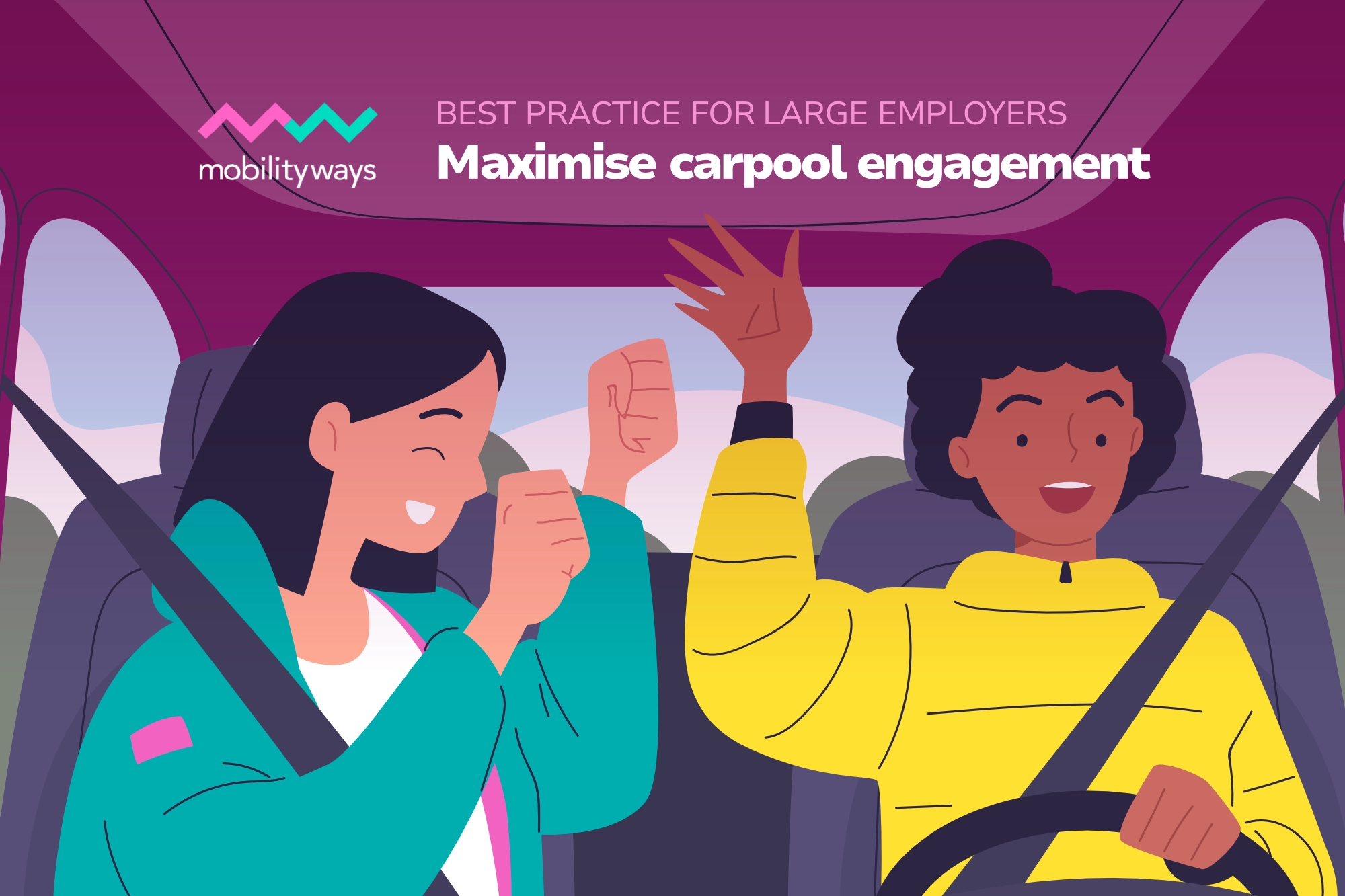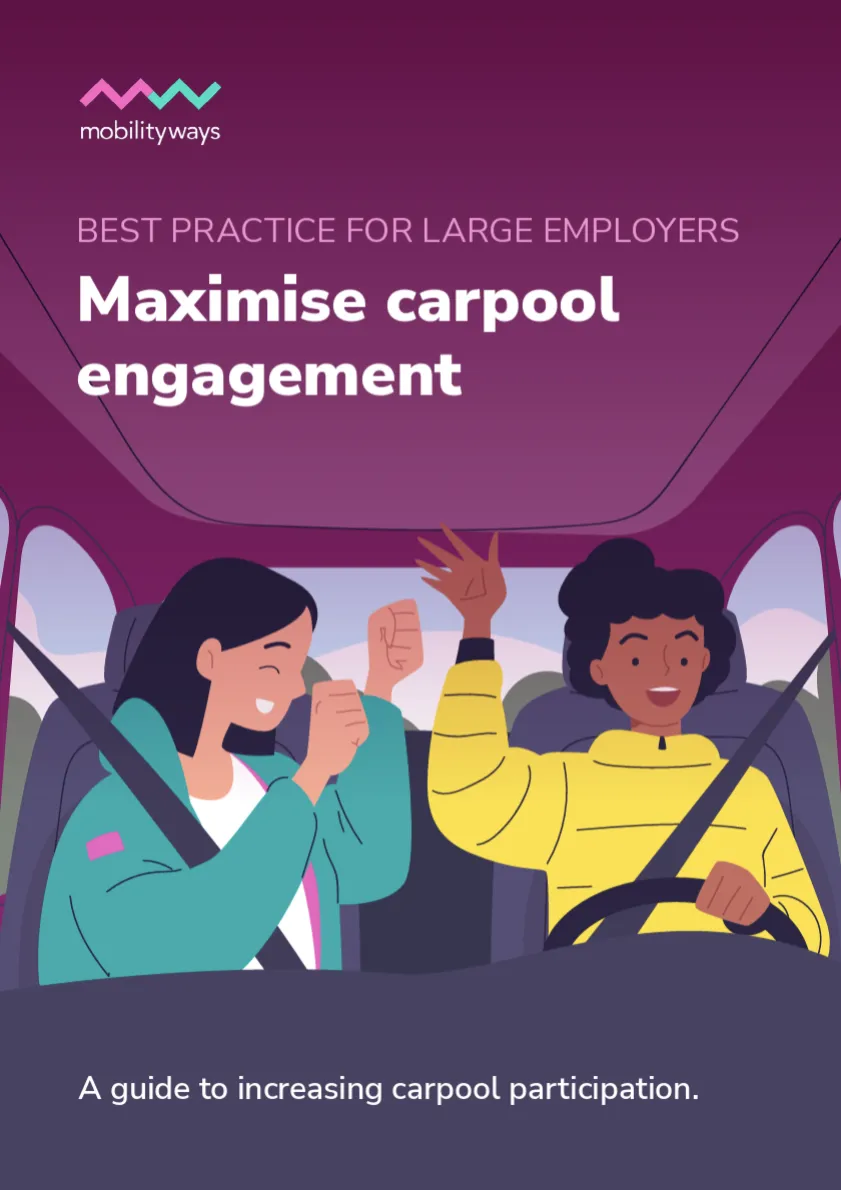
As the UK faces growing challenges around urban congestion, air quality and net zero goals, carpooling plays a crucial role in overcoming them. A new guide from Mobilityways, the UK’s leading carpooling platform, offers a powerful resource to support large organisations, local authorities, transport consultants and planners: The Carpool Behaviour Change Guide.
This practical guide brings together over 25 years of experience from Mobilityways helping large employers shift commuting behaviours. It’s being shared to empower sustainability leads, operations and local transport professionals, and to scale the impact of carpooling across towns, cities and regions.
Whether applied to council staff travel plans, anchor institution engagement, or regional mobility strategy, this guide provides a tested blueprint for success.
Carpooling, or liftsharing, is often overlooked in the sustainable travel mix. However, with increasing pressure to deliver local air quality improvements, meet climate targets, and reduce transport inequality, carpooling can be a high-impact, low-cost solution - without the need for major infrastructure investment.
Commuting alone in a vehicle remains the default for many due to convenience and flexibility. To change this, Mobilityways explains in the guide that carpooling must be made more attractive, visible, and rewarding, through the right combination of policy, incentives, and communications.
The guide features case studies from Bentley Motors, Mercedes F1, and the Northern Care Alliance NHS Trust. Each highlights how simple but strategic interventions - such as VIP parking, employee challenges, or guaranteed ride-home schemes - can lead to significant behaviour change and carbon savings.
The guide introduces a “Carpool Conversion Funnel” - a step-by-step model showing how employees move from awareness to becoming regular sharers. Local authorities can adapt this model for wider public engagement or within their own operations.
To support this funnel, Mobilityways recommends a 10-strategy toolkit, split into policy and communication levers.
